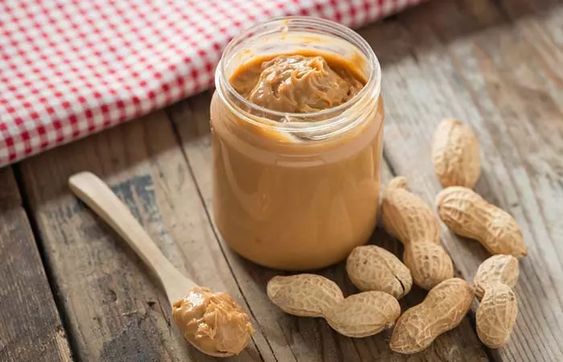Does Peanut Butter Cause Heartburn: All You Need to Know
Peanut butter is not a common trigger for heartburn, but it can contribute to heartburn symptoms in some individuals depending on their sensitivities and dietary habits. Heartburn, also known as acid reflux, occurs when stomach acid flows back into the esophagus, causing a burning sensation in the chest. Read about How Long Does a Heart Cath Take
Here are a few factors to consider:
- Fat Content: Peanut butter is a fatty food; high-fat foods can relax the lower esophageal sphincter (LES). This muscle normally helps prevent stomach acid from entering the esophagus. When the LES relaxes, it can lead to acid reflux, which may cause heartburn.
- Individual Sensitivity: People vary in their sensitivity to different foods, so while some individuals may experience heartburn after consuming peanut butter, others may not have any issues.
- Serving Size: Consuming large quantities of peanut butter in one sitting can increase the likelihood of heartburn. Moderation is key.
- Other Ingredients: Some commercial peanut butter brands may contain additives or preservatives that could trigger heartburn in sensitive individuals. Choosing natural peanut butter without added ingredients might be a better option.
Also read the Article: Explain What Distinguishes a Stroke from a Heart Attack
If you’re prone to heartburn and suspect that peanut butter may be a trigger for you, you can try the following tips to reduce your risk:
- Opt for smaller servings of peanut butter.
- Choose natural peanut butter with minimal additives.
- Avoid eating peanut butter close to bedtime, as lying down can increase the risk of acid reflux.
- Consider your overall diet and lifestyle, as smoking, alcohol consumption, and excessive caffeine can also contribute to heartburn.
Understanding Heartburn
Before discussing the connection between peanut butter and heartburn, it’s crucial to understand what heartburn is clearly. Heartburn, also known as acid indigestion or gastroesophageal reflux disease (GERD), is a burning sensation when stomach acid flows back into the esophagus.
The Role of Diet in Heartburn
Diet plays a significant role in the development and exacerbation of heartburn symptoms. Certain foods can trigger the relaxation of the lower esophageal sphincter (LES), a muscular ring that separates the esophagus from the stomach. When the LES relaxes inappropriately, stomach acid can splash back into the esophagus, causing irritation and that characteristic burning sensation.
Peanut Butter and Heartburn: Exploring the Connection
What Is Heartburn?
Before we dive into the peanut butter heartburn connection, it’s essential to understand what heartburn is. Heartburn, also known as acid indigestion, is a burning sensation in the chest that occurs when stomach acid flows back into the esophagus. This can lead to discomfort, pain, and irritation.
Peanut Butter Composition
Peanut butter primarily comprises ground peanuts, which are naturally rich in healthy fats and protein. However, commercial peanut butter may contain added sugar and hydrogenated oils. Understanding these components is crucial when examining their potential impact on heartburn.
Peanut Butter and Heartburn: The Verdict
The good news for peanut butter enthusiasts is that without added ingredients like sugar and hydrogenated oils, pure peanut butter is less likely to trigger heartburn. Peanut butter’s high protein content can help keep the LES sphincter tight, reducing the likelihood of acid reflux.
Peanut Butter: A Potential Culprit?
Fats and Heartburn
Peanut butter is rich in fats, and dietary fats are often associated with an increased risk of heartburn. When you consume fatty foods, they can relax the LES, making it easier for stomach acid to flow back up. This relaxation can contribute to the development of heartburn symptoms.
Peanut Butter and Acid Content
Additionally, some peanut butter brands may contain added acids or preservatives. These additives can further exacerbate heartburn in individuals sensitive to acidic foods. Opting for natural, unsweetened peanut butter with minimal additives may reduce the risk of heartburn.
Who Is at Risk?
Pre-existing Conditions
Individuals with pre-existing conditions such as GERD or hiatal hernias are more susceptible to experiencing heartburn triggered by peanut butter. The underlying issues in these conditions can weaken the LES, making it less effective at preventing acid reflux.
Personal Sensitivity
Sensitivity to specific foods varies from person to person. While some individuals can enjoy peanut butter without any issues, others may find it a frequent trigger for heartburn symptoms. It’s essential to listen to your body and identify your triggers.
Managing Peanut Butter-Induced Heartburn
Moderation
If you’re a peanut butter enthusiast but also prone to heartburn, moderation is key. Enjoying small servings of peanut butter and pairing it with non-acidic foods can help minimize the risk of heartburn.
Timing
Consuming peanut butter too close to bedtime can increase the likelihood of experiencing heartburn during the night. It’s advisable to avoid heavy or fatty foods in the hours leading up to sleep.
Alternative Spreads
For those who adore the creaminess of peanut butter but wish to avoid heartburn, there are alternatives available. Almond butter, for instance, is a lower-fat option that may be gentler on the digestive system.
Conclusion
In conclusion, the relationship between peanut butter and heartburn is nuanced. While peanut butter’s high-fat content and potential additives can be problematic for some, not everyone will experience heartburn after consuming it. It’s essential to be mindful of your body’s responses and make dietary choices accordingly.
FAQs
Can peanut butter cause heartburn for everyone?
No, peanut butter’s effect on heartburn varies from person to person. Some individuals may experience heartburn, while others may not.
Are there peanut butter brands that are less likely to trigger heartburn?
Natural, unsweetened peanut butter with minimal additives is less likely to trigger heartburn.
Can I still enjoy peanut butter if I have GERD?
Moderation is key. Small servings of peanut butter and careful timing can help individuals with GERD enjoy it without discomfort.
Are other spreads gentler on the digestive system than peanut butter?
Yes, almond butter is a lower-fat alternative that may be a better choice for those prone to heartburn.

